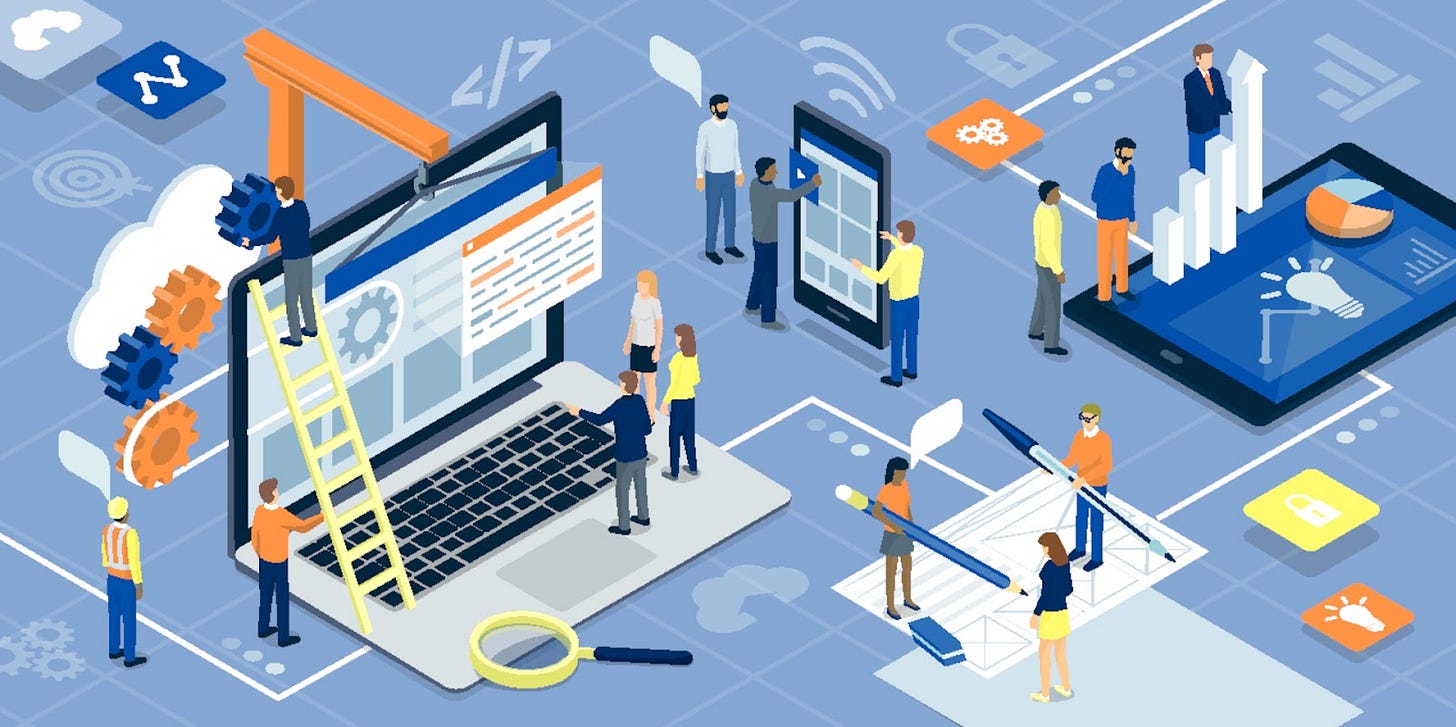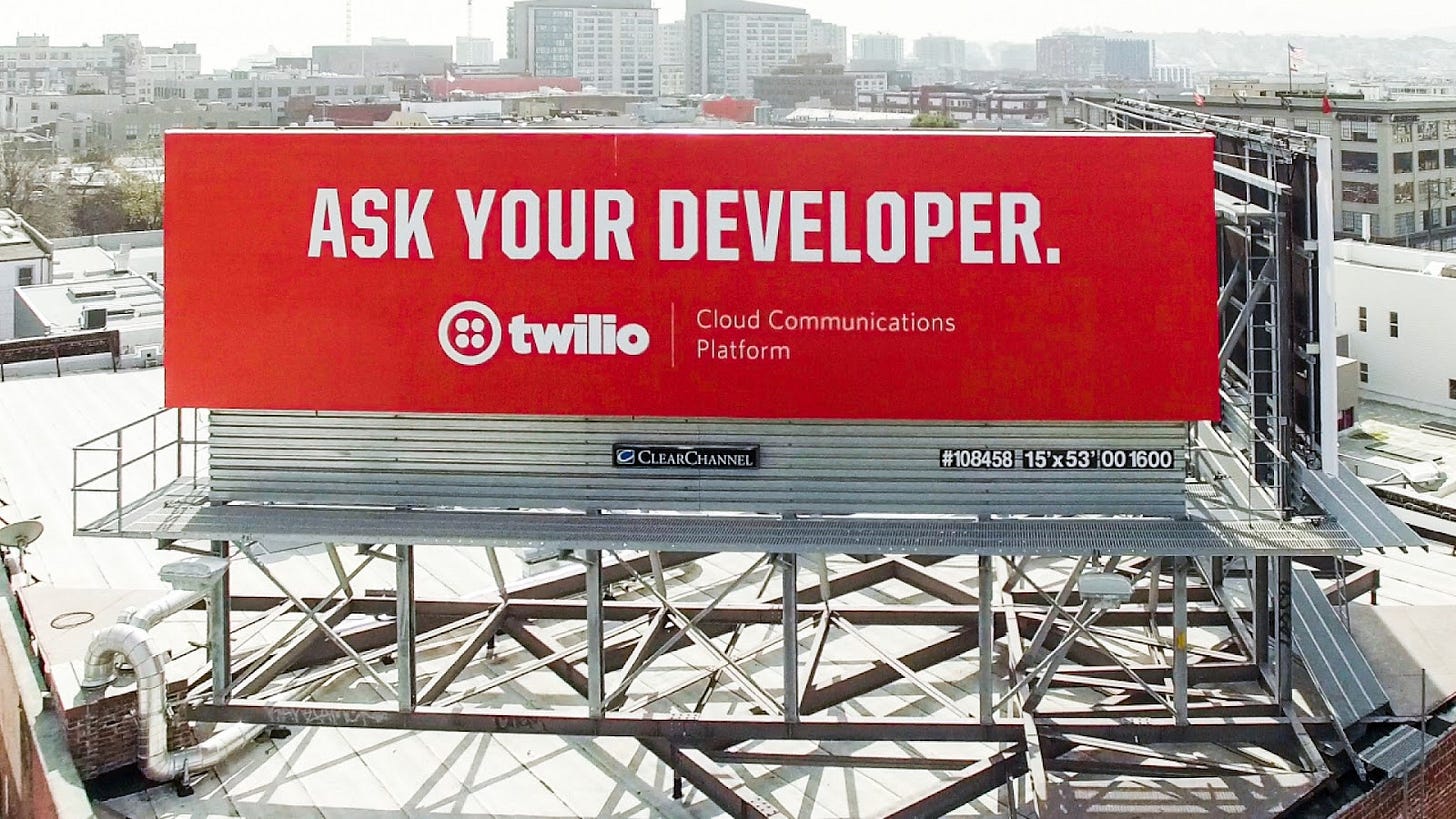Developer Experience is Dead
There is more to developer flow than great tools, docs, and advocates
Getting new tools is like that moment when you were young and would get a new toy. You tore open the packaging, tossed the instructions aside, and for the next few hours, the only thing that mattered was this awesomely new and enthralling object in your hands.
For me, the toys that transported me into another world were Legos. Even now, I will sometimes order a set on a whim just to feel the rush to build something new. While many others have more impressive collections like AWS Chief Evangelist Jeff Barr, I have a decent collection of sets, especially the City Architecture series.
The need to build, probe, take apart, and rebuild is innate in those of us that self-identify as techies. That process is even better if we have good tools to help us along the way, like a trusty Swiss Army Knife or those sets of mini Torx screwdrivers.
The same goes for writing and deploying software. The better the tools, the better the results, at least in theory. This led to greater interest around tools and methodologies focused on making the lives of developers easier. The term coined for this is developer experience.
The developer market has exploded in popularity. With the rise of DevOps, increasing pace of digital transformation, and a massive glut of free capital being poured into tech startups, the past decade has seen a Cambrian explosion of tools.
How big is the market? There are 1004 companies in the developer tools market that ship 1286 product lines for developers. Of the startups, they raised $37 billion USD in VC funding. Of the 117 new startups in the developer market, they collectively raised $1 billion last year.
The approach to selling tools to engineering teams during this period got flipped on its head. No longer were developer tools sold top down by salespeople to IT leaders. In startups, developers were making the tool choices. Even developers in bigger companies were gaining more say in tooling decisions as leaders realized how it helped with productivity and recruitment.
With developers making the call on tools, this meant an entirely new approach to sales was needed. It was about awareness, documentation, onboarding, and community. Companies in this market started to employ product-led growth strategies, investing more into documentation, examples, workshops, online forums, user experience, and open source (if not open source to begin with).
In parallel, companies were exploring more grassroots effort to engage developers in the places they were hanging out. This was the beginning of developer relations as a role. Developer tool providers built teams of developer advocates to spread the word through content, events, and social media. You started seeing them at conferences, hackathons, and meetups. Some of the early proponents of this approach were startups like Twilio, New Relic, and MongoDB, all of whom are now sizable public companies.
Fast forward to today, developer experience has become a well-understood concept and playbook for any developer tool startup. While every organization may have a slightly different take on that playbook, it broadly covers the following pillars:
Product experience - how the tool fulfills a significant need for developers in a way that optimizes productivity, covering core functionality to UI/UX to interoperability
Documentation - how the tool works including fully documented API’s and SDK’s in a way that is described clearly, accurately, and easily searchable
Onboarding - how easy the tool is to start using and being productive quickly, including tutorials, code examples, and whether any steps are required to begin using such as keys, credit card, email sign-up, etc.
Support - how quickly can users get answers to questions or issues that arise, whether through official support mechanisms or forums such as Stack Overflow and Reddit
Awareness - how do developers find out about the product, which includes content creation (blogs, videos, social media), talks at events & webinars, GitHub activity, etc.
Community - how does the company actively engage with developers, whether through developer advocates, meetups, online community forums, and other places developers spend time68
The mostly widely used and popular tools generally do an excellent job across all six of these pillars. Each however will have a different emphasis on a particular pillar whether it is through great documentation and examples, or an active online community, or by having incredibly active and accessible developer advocates.
I recently read a post from the head of developer experience at Vercel, one of the more popular developer tools on the market. They truly exemplify themselves across all the pillars given that their whole premise as a solution is to keep developers in their flow state.
What most sparked my interest though was his comment about developer advocacy. In referencing a Kelsey Hightower tweet about Developer Advocates thinking more like CTO’s, Lee shared the following insight:
“DevRel as we knew it is dead…The power now lies with the content creators.”
I agree, the long-lasting effects of the global pandemic on the industry and role was to engage deeper into local communities while leveraging online channels for broader awareness. But this statement does not go far enough.
In reality, developer experience as we know it is dead.
This does not mean that everything that makes up developer experience is going away or not important. One observation that I have seen with many tools is that while the product experience and everything around that experience is excellent, the use of the tool inside teams and organizations can stall, especially in larger organizations.
In a conversation with a CTO last week, this person shared the observation that a great tool in a poorly functioning team is about as useful as a poor tool in a high functioning team. Both experience friction from different vantage points. A chaotic and disorganized engineering team slows down a developer as much, if not more so, as a clunky tool.
Consider the following scenario. Even when a team has all the best tools, if build times are slow, code reviews are delayed, answers to questions are hard to find, or developers are hunting for the right people or resources to move forward, then the tools do not matter. The team will never achieve flow. While you might think this is hypothetical, I have seen organizations that spend enormous amounts of money on the latest laptops, fancy office spaces, and endless snacks, and yet do nothing to actually address the blockers of developer flow.
This was the point in highlighting the differences between developer experience, DevOps tooling, and developer enablement. I showed these as intersecting circles, but upon thinking through the implications of developer enablement, it was apparent that developer enablement is the next stage of developer experience. Without the right environment, culture, and processes, the tools themselves are meaningless. In the next post I will dig deeper into this transition from developer experience to enablement and how engineering organizations can start to address the roadblocks to flow.
What are tools that you have used recently that have helped you maintain flow? What are some blockers in your organization that are impacting your flow?
Mark Birch, Editor & Founder of DEVBIZOPS
By the way, in case you were curious, here is a photo of my Lego City Architecture sets. I have other sets in the series, but my favorite are the city ones.
I am blessed to have been able to visit almost all of the cities above, except for Dubai! But I plan to change that later this fall to attend Gitex in mid-October as well as visit a few new cities across Africa. In the meantime, here are a few places I will be at over the next couple of months:
New York City – On July 12, I will be at the AWS Summit comes to NYC, in my hometown! If you are coming, I will see you there.
San Francisco - I am in San Francisco to spend time with AI/ML startups and will be hanging out at the AWS Startup Loft July 14 and 15, so stop on by if you are in town.
Seattle - This is more of an internal event thing for the Developer Relations team from July 19 to 21. It will be a series of educational tracks and I am going to be sharing the fundamentals of community.
Asia – I will be back in Singapore July 22nd - 25th, then heading to Bangkok for a month as my base to support any startup events while I am in Southeast Asia. Seeing if Indonesia, India, Korea, and Vietnam can be worked in the schedule, but if you know of some great startup events happening, let me know!
Sydney – I am excited to head out to Australia for the first time in over three years to participate in the Tech Leaders event on August 18th. I plan to stay a few days before and after and looking forward to meeting startups in the region!
Want to learn more about DEVBIZOPS and read more hot takes about IT, technology, and working smarter. Receive our weekly newsletter by signing up to our Substack!





